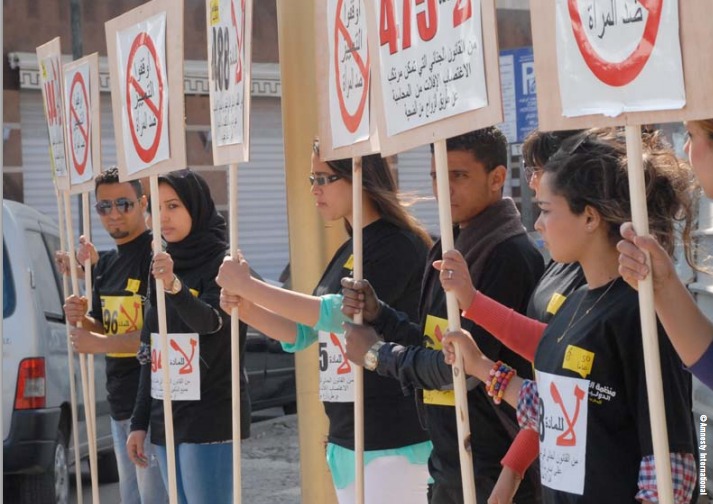
By Tarah Demant, Women’s Human Rights Thematic Specialist
Each of us has autonomy over our own body: we all have the right to make our own decisions about our healthcare, reproduction, and sexual lives, and we should be able to do so without living in fear of violence or discrimination. No matter where you live, no matter who you are, it’s your body and your rights.
Yet far too many are deprived of the basic human rights over their own bodies, including the right to be free from violence, sexual, assault, and rape. Such violence against women is part of a global culture of discrimination, but in the Maghreb region of Morocco, Algeria, and Tunisia, discriminatory legal provisions help enable rampant sexual violence against women and girls.
Thanks to the penal code in Morocco, the severity of punishment for rape depends on whether the woman was a virgin or not.
In all three countries, marital rape is not recognized as an offense, and both same-sex sexual relations and consensual extramarital relations are illegal, which can discourage survivors from reporting assaults, for fear they will be in legal trouble themselves.
These legal provisions impede justice for survivors and continue to facilitate incidents of sexual violence, leaving survivors of rape and sexual assault without justice or hope. In March 2012 in Morocco, 16 year-old Amina Filali swallowed rat poison and killed herself after she was forced to marry her rapist. No one should face a lifetime with her rapist, just as no one’s virginity “status” should determine justice.
For these reasons, Amnesty has selected the Maghreb region as a focus area in its My Body, My Rights campaign, a global campaign to help ensure everyone has access to their sexual and reproductive rights and enjoys the full spectrum of rights over their bodies.
All people have the right to live in safety. All people have the right to make their own decisions about their bodies, including whether to have children, when to marry, and when and with whom to engage in sexual relations, and the governments of Morocco, Algeria, and Tunisia must amend discriminatory legislation that gives offenders impunity.
Furthermore, sufficient resources must exist for survivors of sexual violence, including medical services, psychological counseling, and social support. Law enforcement officers and government officials must undergo training in women’s rights issues and gender-based violence.
The governments of Morocco, Algeria and Tunisia are failing to protect women and girls from gender-based violence. Demand action and accountability by signing our online action to the authorities in these three countries and joining our Women’s Action Network as we launch our campaign to defend the rights of everybody and every body!
